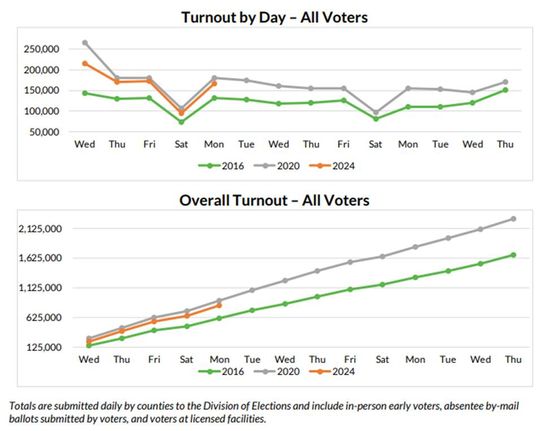Title: When Will We Know the U.S. President-Elect for 2025? A Comprehensive Guide.
As the 2024 U.S. presidential election approaches, millions are gearing up to cast their ballots. But once Election Day has passed, when will the results be in, and how long will we wait to officially know who will be inaugurated as the U.S. President in 2025? Here, we dive into the election timeline, key factors affecting the count, and the unique features that may impact when we can expect to know the next U.S. president.
1. Understanding the Presidential Election Timeline
The U.S. presidential election involves several key phases:
- Election Day: This year, Election Day falls on Tuesday, November 5, 2024. This is the last day for in-person voting, while many states have early voting periods that open weeks earlier. Mail-in ballots, which have become increasingly popular, can also be submitted up to and including Election Day in most states.
- Vote Counting: In the hours immediately following polls closing on Election Day, states begin to count the ballots. In recent elections, these counts have included not only ballots cast in person but also early votes and a significant number of mail-in ballots.
- Certification of Results: States have until December 2024 to certify their election results. The dates vary by state but generally fall between late November and early December.
- Electoral College Vote: Once states have certified their results, the 538 members of the Electoral College cast their votes in mid-December. This date is set for December 16, 2024. The outcome of this vote formally determines the President-elect.
- Congressional Certification: On January 6, 2025, Congress meets to officially count the Electoral College votes and confirm the President-elect.
2. Key Factors Affecting How Quickly Results Are Known
Although Election Day happens on November 5, 2024, we may not immediately know the winner. Here are some reasons why:
a. Increased Use of Mail-In Ballots
Mail-in voting has been on the rise. This trend can be attributed to voter convenience and efforts to increase turnout. However, the high volume of mail-in ballots has implications for the timeline:
- Processing Delays: In many states, election officials cannot start processing mail-in ballots until Election Day. This rule means that states with high mail-in voting can face delays in reporting results.
- Extended Deadlines for Receipt: Some states, like California, accept mail-in ballots postmarked by Election Day but received up to a week or more later. This policy means that final tallies can take longer in states with extended deadlines.

b. Close Races in Key Swing States
If the election is a close race, especially in swing states, it could take longer to determine the outcome. Swing states like Pennsylvania, Michigan, and Arizona play pivotal roles in the Electoral College. If the race in one or more of these states is too close to call, recounts may be necessary.
c. Recounts and Legal Challenges
When a race is close, candidates can request recounts or file legal challenges to dispute results. These processes, while meant to ensure accuracy, can delay results. States like Florida in 2000, where the election result was contested, experienced delays due to court rulings and recounts. Since then, states have updated their recount and legal challenge procedures, but delays can still happen in close races.
d. Ballot Curing and Provisional Ballots
Some ballots are marked for further review and require “curing,” where voters confirm or correct information. Provisional ballots, which are issued when a voter’s eligibility is in question, must also be verified before they’re counted.
3. The Role of the Media and Projections
News outlets play a significant role on Election Night by projecting results based on exit polls and early counts. Major media outlets like the Associated Press, CNN, and Fox News have dedicated teams of statisticians and analysts who examine voting patterns, demographic data, and historical trends to “call” states before all votes are counted. This “call” is not an official result but can provide strong indications of the likely winner.
For the 2024 election, these projections will be closely watched. However, since the media only offers projections and not official results, any prematurely declared winner may be subject to correction as official counts come in.
4. The Certification Process and Electoral College
Even if we know the projected winner soon after Election Day, the official process to certify the result is lengthy. Here’s a look at how the Electoral College and certification unfold:
- State Certification: Each state certifies its results after tallying and reviewing all ballots, including provisional and cured ballots.
- Electoral College Voting: On December 16, 2024, the Electoral College meets. Electors from each state convene to cast their official votes. In most cases, electors cast their votes for the candidate who won the popular vote in their state.
This vote is significant because it officially confirms the President-elect. Once the Electoral College votes are counted, there is a clearer, if not fully official, understanding of the next president.
The Role of Faithless Electors
While rare, faithless electors occasionally vote against their state’s popular vote. States have implemented laws to prevent this from affecting election outcomes, and in the vast majority of cases, electors vote as expected.

5. Congressional Certification on January 6, 2025
On January 6, 2025, Congress convenes to count the Electoral College votes. The Vice President, in a joint session of Congress, announces the results and certifies the President-elect. This session is generally a formality, though in recent years, it has attracted significant public attention.
6. Inauguration Day: January 20, 2025
After Congress certifies the election, the President-elect prepares for Inauguration Day. The new president is sworn in on January 20, 2025, marking the formal transition of power.
7. Possible Scenarios for 2024 Election Results Timing
Predicting how soon we will know the President-elect can depend on several scenarios:
- Scenario 1: Decisive Win: If one candidate wins by a clear margin, major media networks may call the race on Election Night or early the next morning.
- Scenario 2: Delayed Results in Key States: If several states have significant delays in counting or if legal challenges arise, results could be delayed for days or even weeks.
- Scenario 3: Legal Challenges and Recounts: In the case of contested results, recounts or court rulings could push the timeline further, as seen in 2000 when the winner wasn’t confirmed until mid-December.
8. Implications for Voters and Election Integrity
A delayed result doesn’t imply fraud or misconduct; rather, it’s often a product of modern voting methods and rigorous election procedures. Additionally, state election boards are increasingly transparent, providing regular updates to keep voters informed.
9. What to Watch For on Election Night and Beyond
For those following the results, here’s a timeline and guide to anticipate when results might come in:
- Early Evening (7–8 p.m. ET): Polls begin to close on the East Coast, with initial results from states like Georgia and Virginia.
- 10–11 p.m. ET: By this time, polls will close in much of the Midwest, and results from swing states like Florida, Ohio, and Pennsylvania will start coming in.
- Midnight and Beyond: Western states, including California and Arizona, will complete voting, allowing for a fuller picture.
10. Looking to the Future
As voting methods continue to evolve, we can expect more efficient systems for counting and certifying ballots. Advances in technology, secure mail-in voting systems, and increased voter education about election timelines can help reduce confusion and delays in the future.
In summary, the results of the 2024 U.S. presidential election will likely be known by early to mid-November if the race isn’t exceedingly close. However, official certification and confirmation by the Electoral College and Congress won’t happen until December and January, respectively. As the United States awaits these results, understanding the electoral process and potential delays can help voters stay informed about when we will truly know the next U.S. president.
1. When is Election Day for the 2024 U.S. presidential election?
- Answer: Election Day is on Tuesday, November 5, 2024. This is the last day to vote, though many states allow early in-person voting and mail-in ballots to be submitted ahead of this date.
2. How soon after Election Day will we know the winner?
- Answer: In many cases, the projected winner is announced late on Election Night or early the next morning. However, in close races, it could take days or even weeks to confirm the results, especially if large numbers of mail-in ballots are involved or if there are recounts or legal challenges.
3. What role does the media play in announcing a winner?
- Answer: Major media outlets analyze voting data to make projections about who will likely win each state, which contributes to an early prediction of the national winner. However, these media projections are unofficial, and the final results come from state certification and the Electoral College vote.
4. Why might there be delays in counting votes?
- Answer: Delays often result from the high volume of mail-in ballots, which can take longer to process, especially in states where counting only starts on Election Day. Close races may also lead to recounts or require additional checks, which can delay the final count.
5. What happens if the election is very close in a key state?
- Answer: If the results are close, especially in swing states, the losing candidate might request a recount. Recounts are common in states where the margin is narrow and can delay the certification of results. Some close races also lead to legal challenges, which further extend the timeline.
6. When do states have to certify their election results?
- Answer: Each state has its own certification deadline, generally falling between late November and early December. By these dates, state election boards are expected to finalize and certify the vote counts, which locks in each state’s choice for the Electoral College.
7. What is the role of the Electoral College?
- Answer: The Electoral College is the official body that elects the President. It consists of 538 electors who meet on December 16, 2024, to cast votes based on their state’s popular vote results. The candidate who secures at least 270 electoral votes wins the presidency.
8. Why doesn’t the Electoral College meet immediately after Election Day?
- Answer: The delay allows time for states to count and certify their votes, handle recounts, and resolve any legal disputes. Once each state certifies its election, its electors can cast their votes with confidence that the results are accurate and final.
9. Could faithless electors impact the election result?
- Answer: While rare, faithless electors occasionally vote against their state’s popular vote. However, most states have laws to prevent or penalize this, so it is unlikely to affect the outcome. Historically, faithless electors have not changed the outcome of a presidential election.
10. When does Congress officially confirm the election result?
- Answer: Congress meets on January 6, 2025, to count the Electoral College votes in a joint session. The Vice President, as President of the Senate, announces the final result, confirming the President-elect.
11. What happens if the election result is disputed?
- Answer: If either candidate contests the results, they can pursue legal challenges in state and federal courts. This happened in the 2000 election, when court battles continued until mid-December. If unresolved by January 6, Congress could face constitutional questions about how to proceed.
12. When will the new president take office?
- Answer: The inauguration of the new president occurs on January 20, 2025. The President-elect takes the oath of office at noon, marking the official start of the new administration.
13. How do mail-in and provisional ballots affect the timing of results?
- Answer: Mail-in ballots can take longer to count, especially if they arrive close to the deadline. Some states also allow time for voters to “cure” ballots (correct issues) before the final count. Provisional ballots, which are used when a voter’s eligibility is in question, are also verified after Election Day, which can extend counting times.
14. Could we know the winner on Election Night?
- Answer: Yes, if one candidate wins by a large margin in enough states, media outlets may confidently project a winner on Election Night. However, in a close election or one with delayed vote counts, it might take days or longer to make an accurate projection.
15. What are “swing states,” and why are they important?
- Answer: Swing states, also known as battleground states, are states where both major parties have strong support and the outcome is uncertain. Winning these states is crucial for a candidate to secure enough Electoral College votes, so delays in swing states can significantly impact when we know the winner.
16. What can voters expect if the election is delayed?
- Answer: Delays are common, especially with the increase in mail-in voting. Officials typically provide regular updates on counting progress, and states aim to ensure accuracy over speed. A delay does not indicate issues with election integrity but reflects the time required to count every vote.
17. How can voters stay informed during the counting process?
- Answer: Voters can stay informed by following updates from their state’s election office and reputable news sources. Many states have transparency measures, such as posting counting progress online or holding press briefings to explain any delays.
These questions address the timeline, potential delays, and processes involved in determining the next U.S. president, helping voters understand what to expect after Election Day.

“Amazing post, keep up the good work!”
Beyoğlu su kaçağı tespiti Zeytinburnu’nda evimdeki su kaçağını hızlıca buldular ve hemen onardılar. Teşekkürler. https://celticfansclub.com/ustaelektrikci
Pingback: Disney Stock Price Surge - Deep Learn Daily
I truly enjoy examining on this website , it has wonderful content. “I have a new philosophy. I’m only going to dread one day at a time.” by Charles M. Schulz.
Somebody essentially help to make seriously posts I would state. This is the first time I frequented your web page and thus far? I amazed with the research you made to make this particular publish incredible. Fantastic job!
I don’t think the title of your article matches the content lol. Just kidding, mainly because I had some doubts after reading the article.
I don’t think the title of your article matches the content lol. Just kidding, mainly because I had some doubts after reading the article.
I don’t think the title of your article matches the content lol. Just kidding, mainly because I had some doubts after reading the article.
I don’t think the title of your article matches the content lol. Just kidding, mainly because I had some doubts after reading the article.